Like the strands of mycelium running beneath the soil, fungi and friendship are what connect the founders of North Spore—a mushroom company in Portland, Maine. Since their inception in 2014, North Spore, like fungi itself, has experienced continuous change and growth.
What began as an urban farm selling fresh oyster mushrooms directly to consumers, while operating out of a 200-square-foot space and cultivating mushrooms in a small grow-tent, has blossomed into a mushroom spawn company heavily focused on knowledge proliferation that now boasts a custom-built 25,000-square-foot warehouse.
The facility, completed in 2022, features a state-of-the-art laboratory, giant substrate mixers, and autoclaves for substrate sterilization. All of this is in pursuit of North Spore’s mission: to make the world of mushrooms accessible to all, fostering collaboration and innovation to improve tomorrow.
The biggest ways that North Spore does this is through disseminating information and providing the supplies necessary to empower people to grow on their own. Their website (northspore.com) and YouTube channel (youtube.com/channel/UC9I4ZR_qouQfZpaD61JpT6g/featured) are packed with free information to foster engagement with the mushroom world.
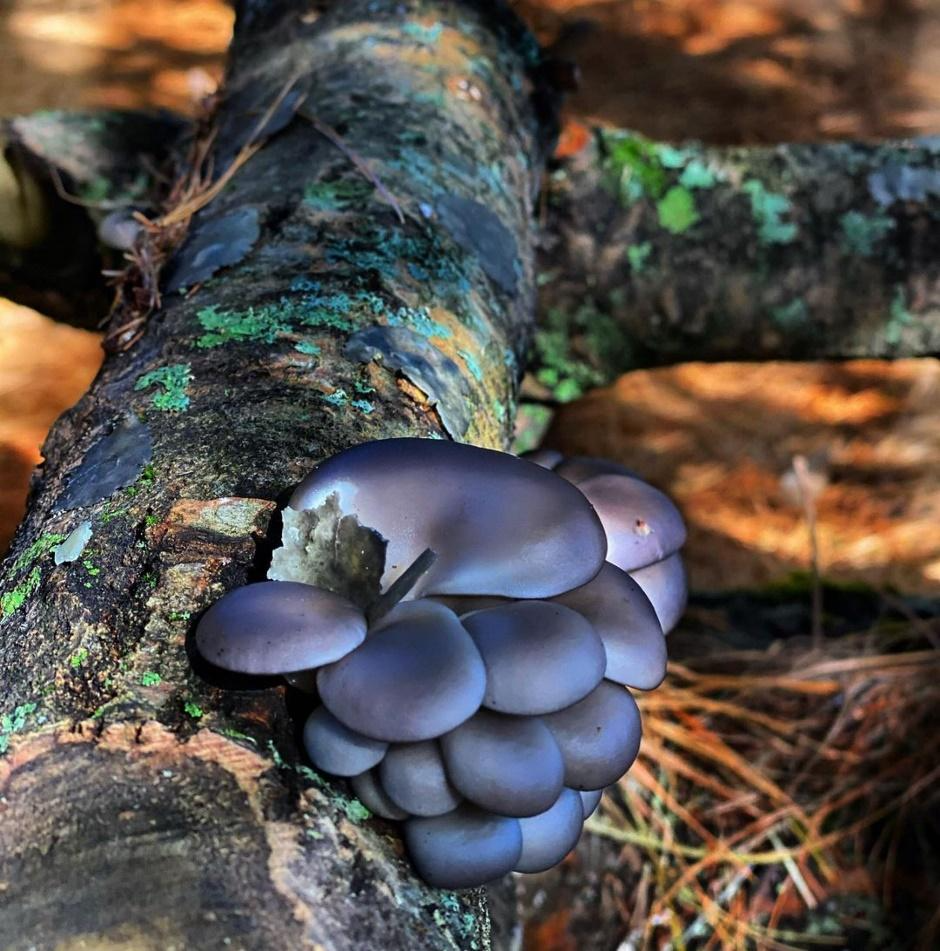
Blue oyster mushrooms. Courtesy of North Spore
This was also an impetus behind shifting from the grower to supplier model in their business. By equipping people with the knowledge and products to cultivate their own mushrooms, the broader knowledge base of mycology will also inevitably grow.
This goal of wide-ranging knowledge contribution is best reflected in North Spore’s most unique offering: research partnerships. By supplying cultures, spawn and substrates to projects large and small the company fosters community, connection and competence.
“We believe that given the vast scope of all the questions in our field that are yet to be explored, it is essential to support the efforts of citizen scientists, backyard tinkerers, academics and others,” North Spore says of these partnerships. “We also believe that through collaboration and sharing of knowledge we can move the field of mycology forward and create a better tomorrow.”
In a recent interview with Kinute, Matt McInnis, co-founder and creative director of North Spore, sat down to discuss the field of mycology and its largely unrealized potential.
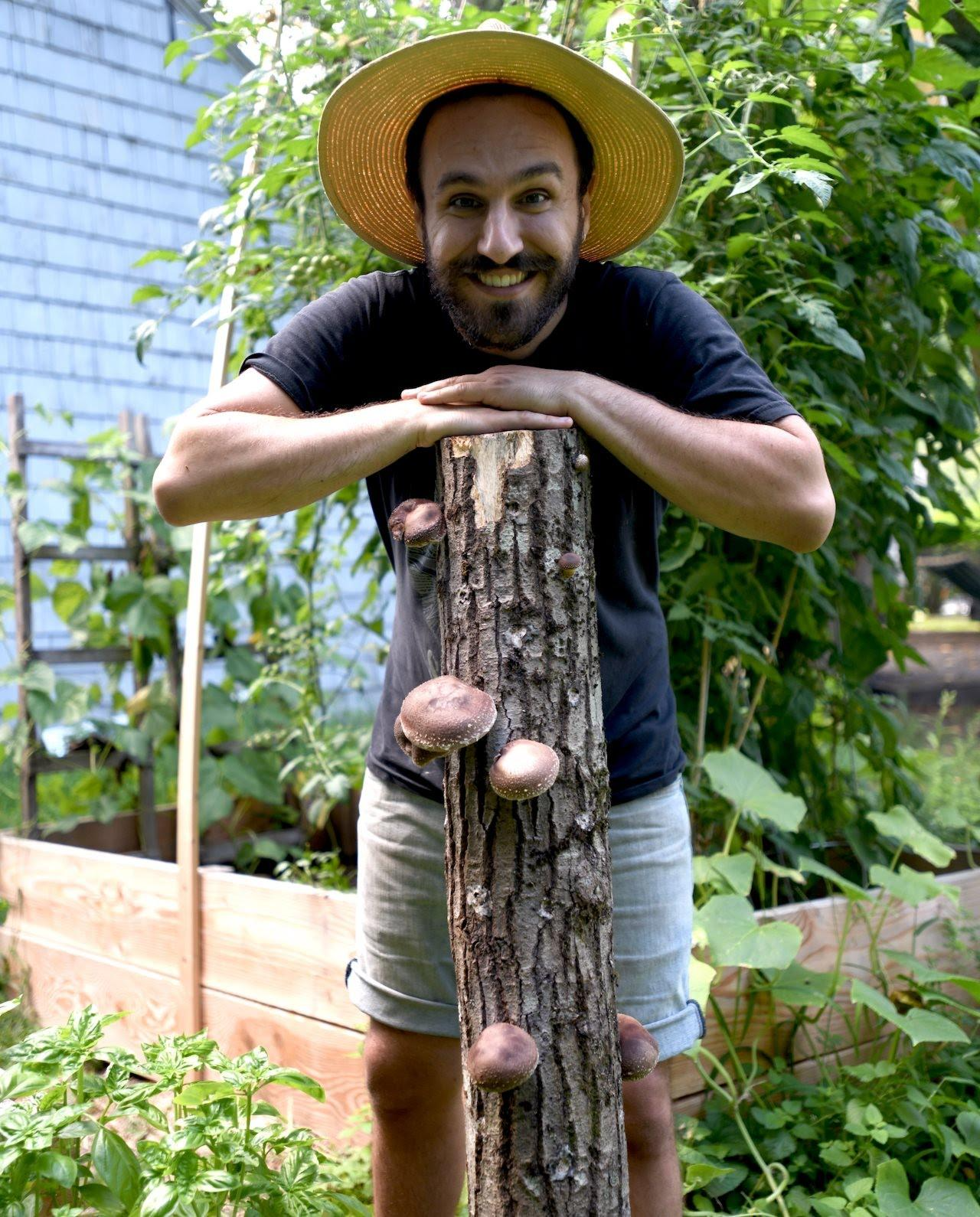
Matt McInnis with a shiitake mushroom log. Courtesy of North Spore
Demystifying mushroom growing
While research partnerships and the rabbit hole of new knowledge acquisition is exciting, newbies need not be daunted when considering dipping a toe into the water of mushroom cultivation. Quite the opposite.
If outdoor garden space is something that a person has access to, a recommended introduction from the North Spore team is cultivating wine cap mushrooms.
The mushroom spawn is mixed with a growing medium—such as straw, wood chips or wood shavings—then kept well hydrated. The mushrooms tend to pop up within the year and continue to thrive in subsequent years with the annual amendment of additional growing medium.
“Wine caps will establish themselves on your property and you'll find them popping up in your garden for years, they're a really easy…fail-safe species,” McInnis said. “They provide a lot of food, they're tasty, and you can't find them in grocery stores.”
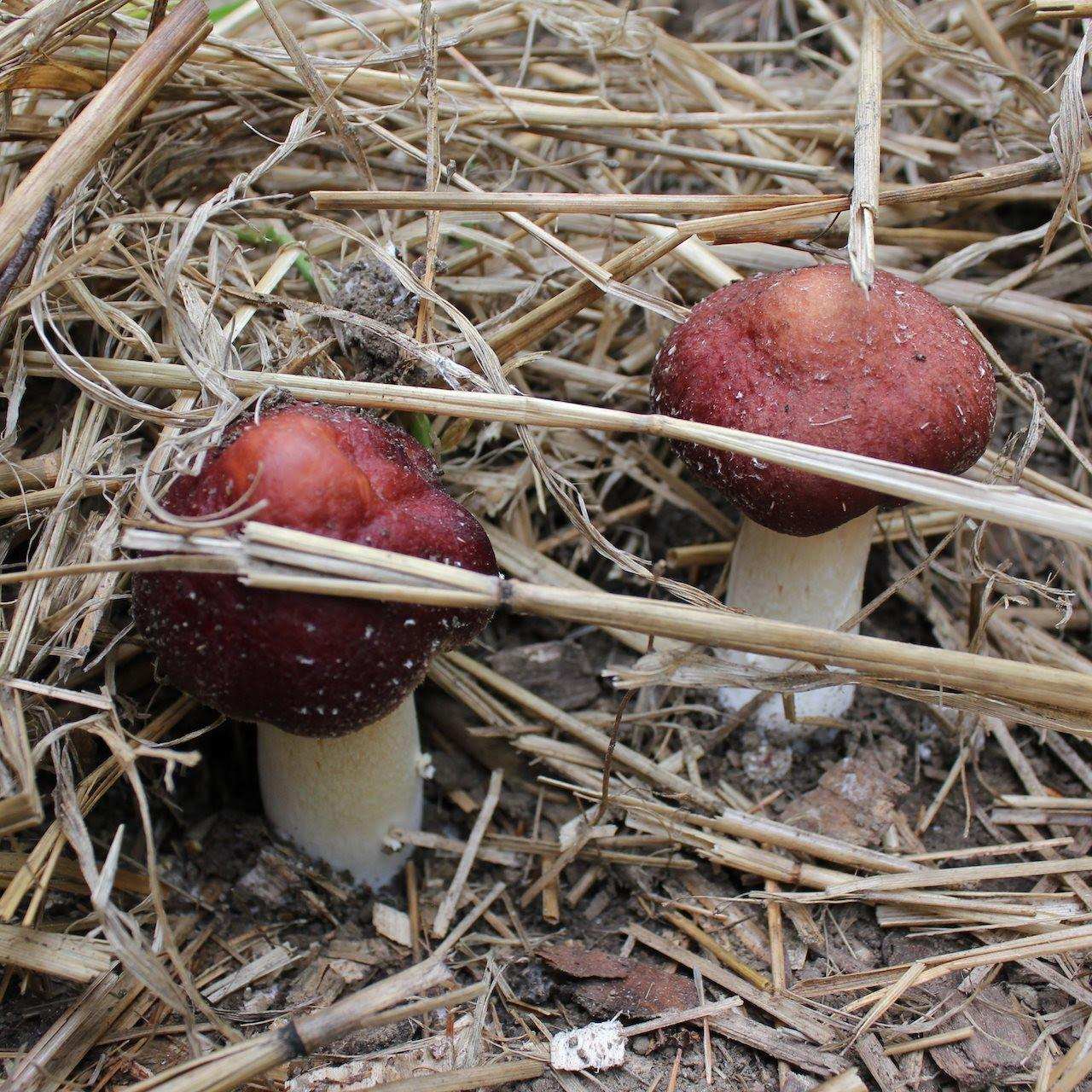
Wine cap mushrooms. Courtesy of North Spore
While throwing mushroom spawn in a shady corner of the yard may seem like an obvious choice to increase food production in unlikely spaces, the North Spore team also encourages people to use them right alongside vegetables in the garden.
Plants like squash and cucumbers provide an excellent canopy for mushrooms to thrive beneath. Additionally, fungi are decomposers and will cycle nutrients in the garden, benefitting the entire health of the ecosystem through this symbiotic relationship.
Another pro tip from McInnis is to grow them right in the garden beds with garlic, highlighting that this heavily mulched space is often under utilized throughout the growing season. “I'll have wine caps growing in a bed that really is kind of fallow until either the garlic scapes are ready to harvest or the garlic bulbs themselves, but I'll have mushrooms being grown in that space that entire time,” McInnis said.
While outdoor mushroom cultivation may conjure images of expansive tracts of land or wild delectables foraged from forests, they truly are an emissary for growing food in unassuming places.
North Spore has fool proof spray and grow mushroom kits that can be cultivated and harvested on a countertop. The kits produce multiple flushes of edible mushrooms and are a great first introduction into mushroom growing. These are also an ideal option for those for whom space is a consideration.
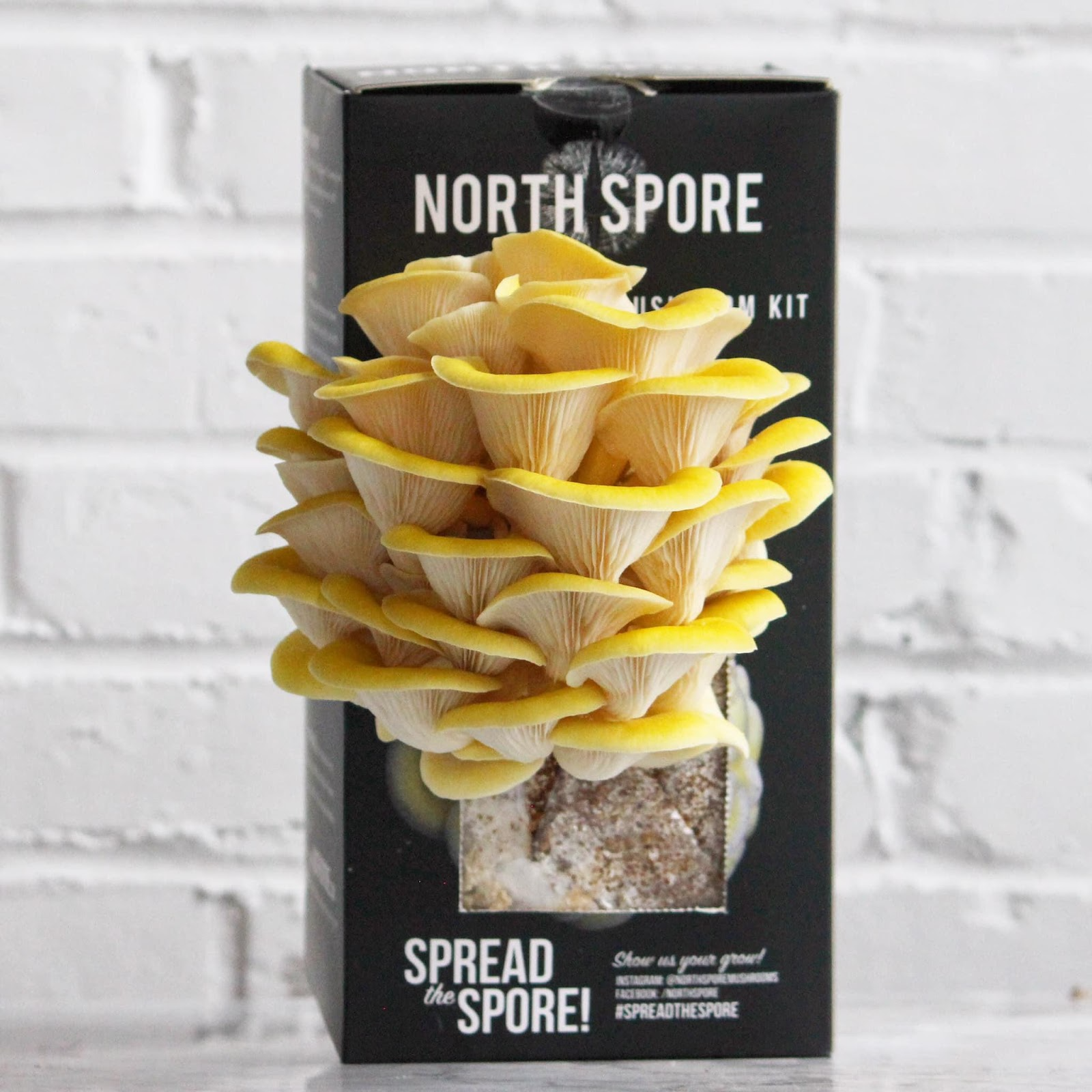
North Spore golden oyster mushroom spray and grow kit. Courtesy of North Spore
“The cool thing about mushrooms is you can grow [them] in a very small space. They don't need anything more than ambient light. They're really well suited for growing in urban environments or in very small environments. You can get a lot of food from a very small footprint,” McInnis said.
It is this sort of innovation that the North Spore team is acutely familiar with, given the space confines that they launched their business within. This proven production model can empower those with even the smallest spaces to take an autonomous step in their own food production, notably, one that requires relatively little resources.
For those looking to dive in deeper, North Spore offers everything from foraging supplies to mushroom cultures and supplements.
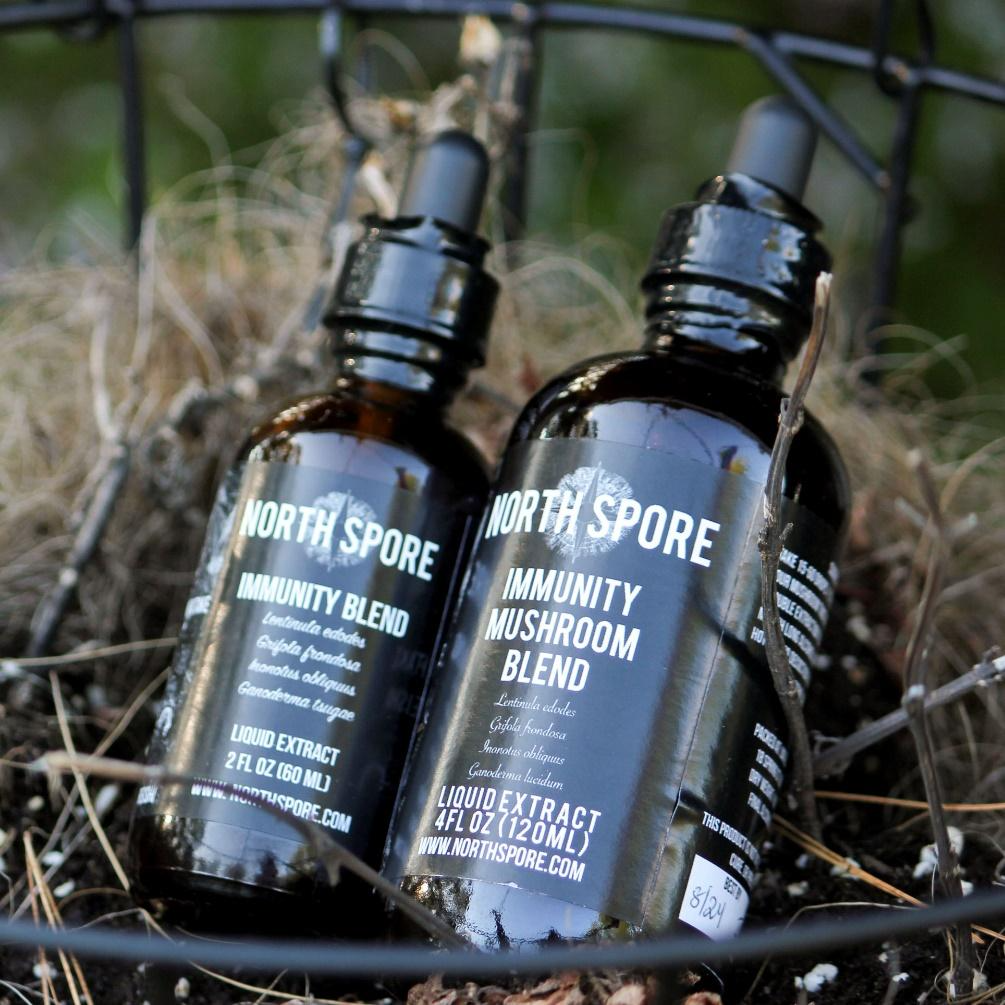
Mushroom tinctures. Courtesy of North Spore
Fascinating fungi
McInnis’ relationship with fungi began in his late teens, while attending The College of the Atlantic—a small liberal arts school on Mount Desert Island in downeast Maine. Here he began learning about edible fungi and wild foods from chefs that he was working with in restaurants there.
A foray into foraging sparked his fascination and sealed his fate. Chanterelles were the first variety that McInnis learned to find in the wild. “Once I figured out how to forage that one species, it launched me into what's been a lifelong fascination with fungi and forging, and that also turned into cultivation,” he said.
At this same time, two friends from college were growing in their love of mushrooms as well. When the friends reconvened with the desire to start a business together several years after graduation, they found fungi as their commonality.
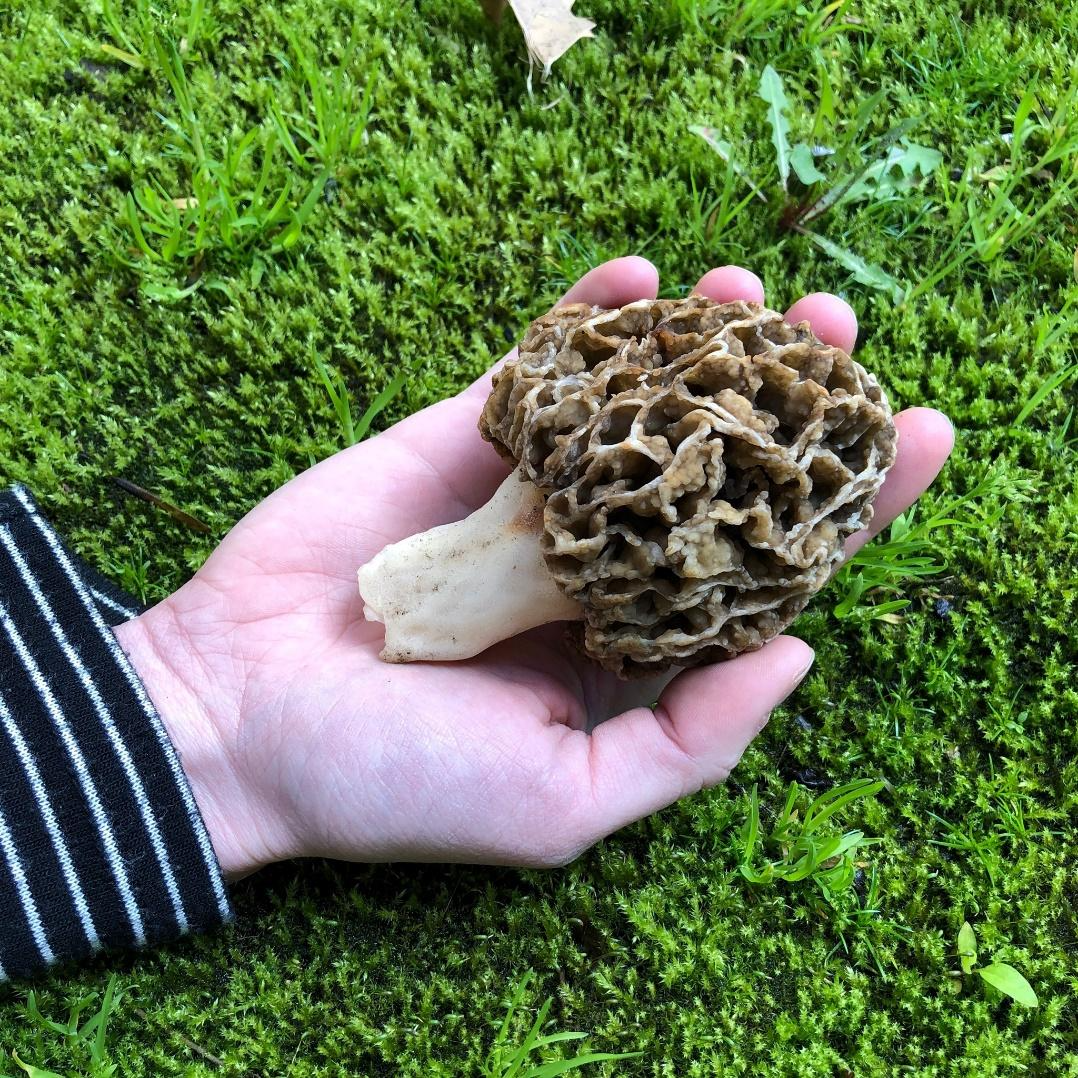
A foraged morel mushroom. Courtesy of North Spore
While McInnis’ exposure had come from the culinary scene, friend and co-founder Eliah Thanhauser grew up foraging and ventured into organic farming post-graduation. The third member of the North Spore founding trinity, Jon Carver, went on to pursue a master’s degree in mycology—poising him for the role of head mycologist when the friends endeavored to launch North Spore.
The biological kingdom of fungi was not established as unique unto itself until 1969—being grouped in with the plant kingdom up until that time. The relative infancy of mycological study paired with their proven benefits as both food and medicine are key drivers for the team.
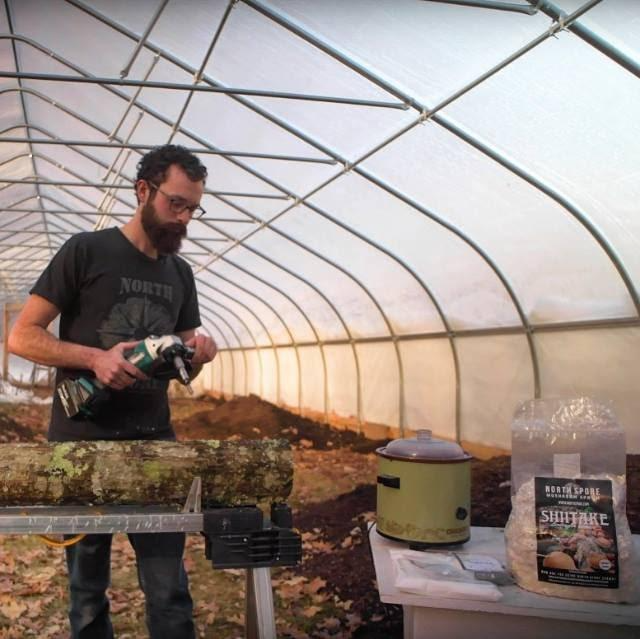
North Spore co-founder and head mycologist, Jon Carver, inoculating mushroom logs. Courtesy of North Spore
“For me, it comes from a fascination with the biology of mushrooms and the history of health, mixed with this resurgence and looking at them for a number of different ailments. That's primarily why I'm interested in this space,” McInnis said.
While citing personal health benefits that he has experienced from incorporating mushrooms into his own daily regimen, McInnis also notes that there are many historical reports of using mushrooms as medicine dating back thousands of years, in some cases.
Fast forwarding to today, there has been a renaissance in evaluating psylocibin’s potential benefits for treating post-traumatic stress disorder (PTSD), depression, anxiety, and end of life despair.
While psychedelics may currently be abuzz, their lesser-known cousins of chaga, reishi, maitake and lion’s mane mushrooms, to name a few, are all well documented in their health benefits.
“We see our mission as an awareness campaign, [to] make people aware that these things exist and that they're easy to cultivate, they're great food, and they're great for you,” McInnis said.
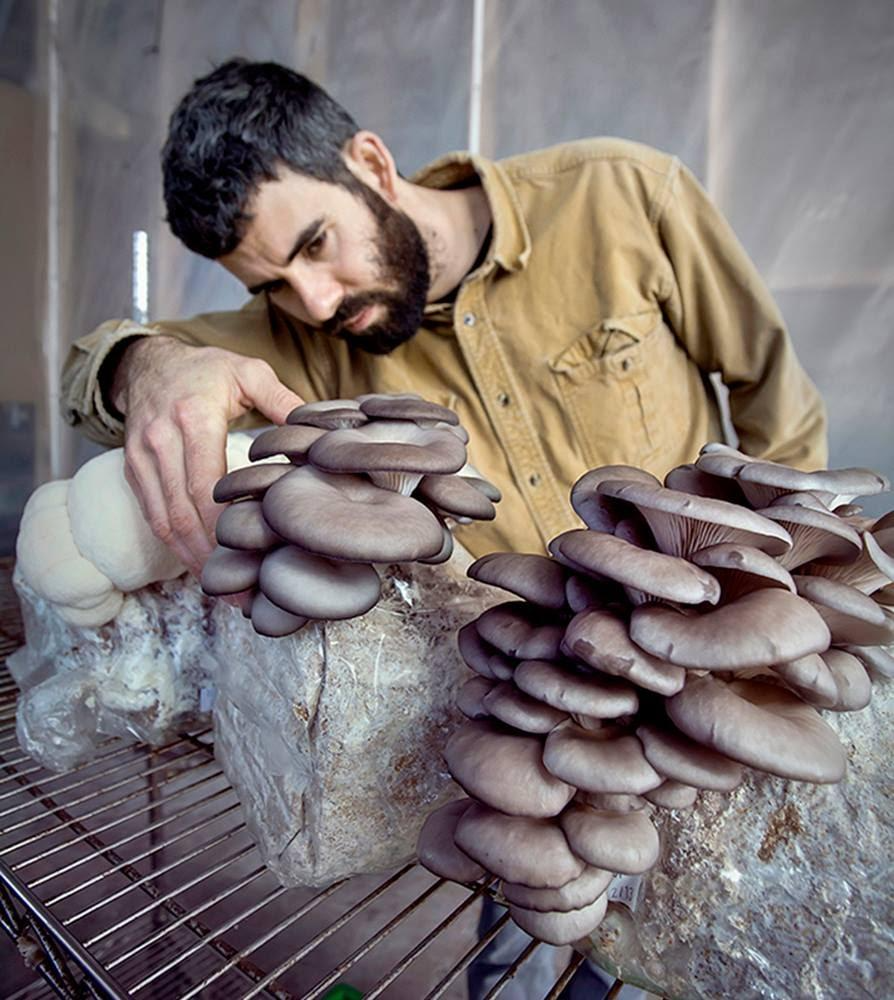
North Spore co-founder and CEO, Eliah Thanhauser, with oyster and lion’s mane mushrooms. Courtesy of North Spore
It’s clear that though the field of fungi has many unknowns yet to be discovered, there are many inroads to connecting with them already—whether that be as a culinary delicacy from forest to fork, a natural medicine from countertop to kitchen table, or as a powerful but unassuming decomposer that closes the loop in the life cycle and nourishes the soil while doing so.
Another interesting aspect of this awareness journey is exposing and deconstructing an underlying socio-historical fear of mushrooms, perhaps first planted in fairytales then fed and fattened on misinformation.
McInnis noted, “There's this mycophobia—people being kind of wary of [mushrooms], associating them with the poisonous toadstools they were warned about in their childhoods and we're trying to make them feel a little less scary and more accessible.”
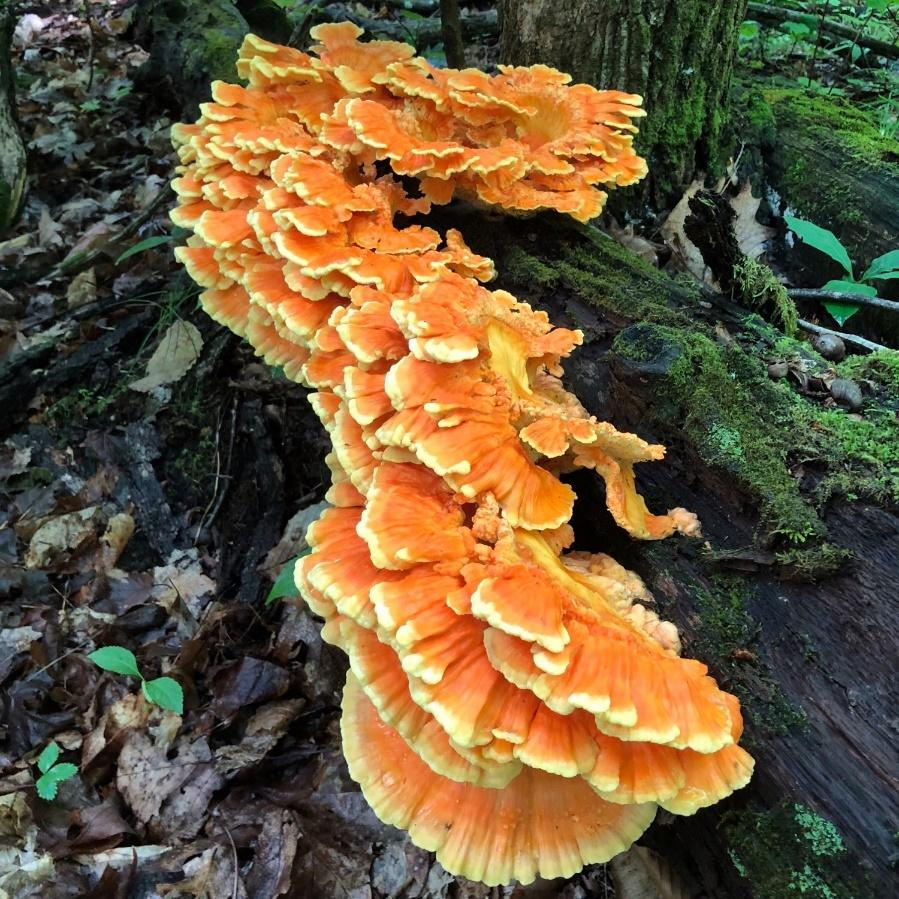
A brilliant flush of chicken of the woods mushrooms. Courtesy of North Spore
As famed mycologist Paul Stamets points out, “Mycologists are few and far between. We are under-funded, poorly represented in the context of other sciences – ironic, as the very foundation of our ecosystems are directly dependent upon fungi, which ultimately create the foundation of soils.”
Until the time that mushrooms and mycologists are a more understood and celebrated part of science and society, these incredibly unique organisms wait quietly in near darkness, ready to share their secrets when the ambient light of attention is shed upon them—as patient as the Earth itself.
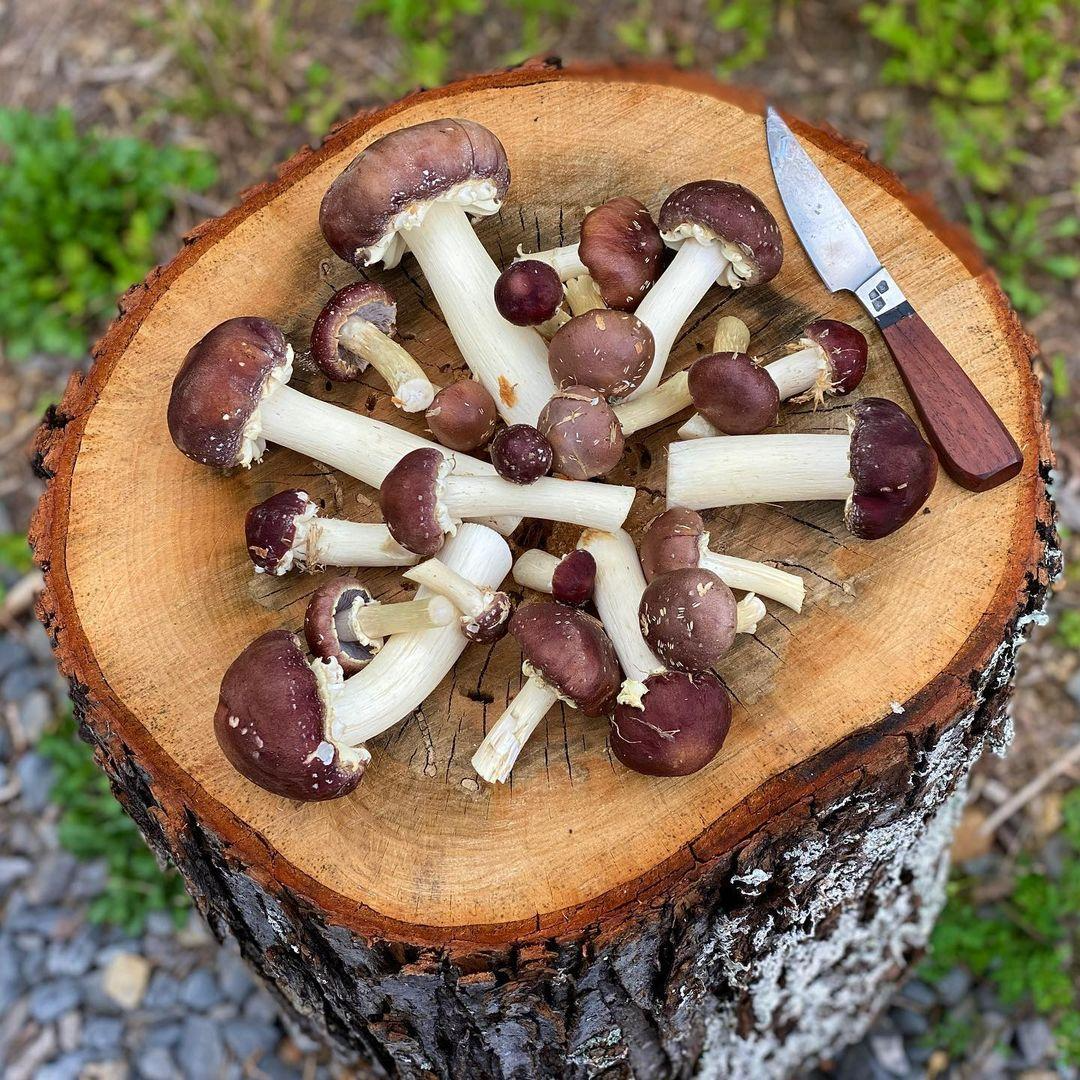
Harvested wine cap mushrooms. Courtesy of North Spore
Connect with North Shore on Instagram at @northsporemushrooms.
